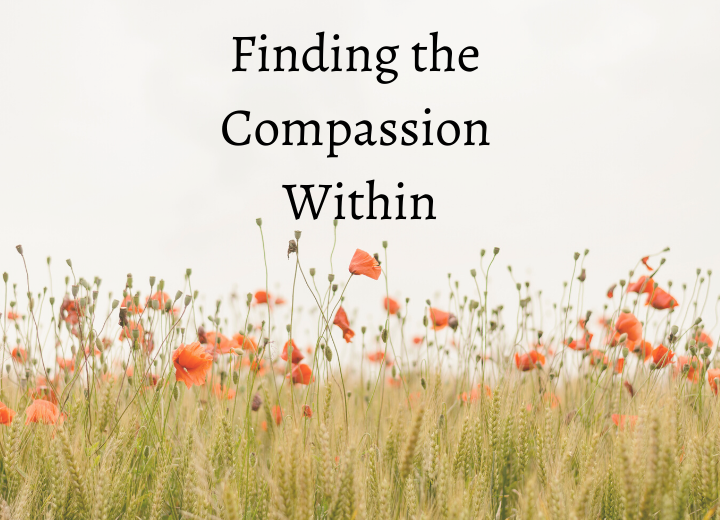
Welcome back to another episode of Your Anxiety Toolkit Podcast. As you all know, I traveled back to Australia to visit family last month. The Australian government requires a 14 day quarantine for any visitors coming into the country. When my plane landed, I was escorted by police to a hotel in Sydney. I was then taken to my room and told that under law, I am not allowed to leave or even open a window for 14 days. Now that I am home and reflecting on my time in Australia, I really want to share with you some of the skills that I had to practice all day every day to get me through that quarantine. I hope some of these skills can also help you when you are facing a difficult situation.
The first skill was to become an observer to my thoughts. It is quite common to be feeling fine and out of nowhere this overwhelming sense of panic takes over and you start to think "Oh my goodness I can't handle this." When this happens, you really have to recognize that you are not in danger. This thought can be so powerful that if you don't work to simply observe it, it can easily become truth or fact in that moment. By observing your thoughts, it actually helps you to diffuse from them which takes away some of their power.
The second skill is to validate your pain. Once you have observed the thought, it is so important to validate that this is really hard. Try being gentle with yourself and not engaging in self-judgment.
The third skill is to keep a routine. Now this does not mean keeping a compulsive, rigid routine; rather, simply take an inventory of what is important to you and make sure you schedule those activities into your day. For me, this meant scheduling phone calls with my family and friends.
The fourth skill is to become aware of your small wins. It is so easy to become negative in a situation such as quarantine which is why it is so incredibly important not to discount your little wins. You may also want to try finding pleasure in the small moments or delights of your day. When you are deprived of pleasure, it is easy to overlook those little moments of joy, but it is important to recognize them when they appear.
The final skill is one you hear me talk about a lot and that is "It's a beautiful day to do hard things." So many people have said to me that they could never do what I did. The thing to remember is that you actually can. It may be hard, but you can do it if you chose. When those moments of doubt creep in that you can't handle something or you can't do this anymore, just remember that you are so much stronger than you think.
ERP School, BFRB School and Mindfulness School for OCD are open for purchase. Click here for more information.
Additional exciting news! ERP School is now CEU approved which means that it is an accredited course for therapists and mental health professionals to take towards their continuing education credit hours. Please click here for more information.
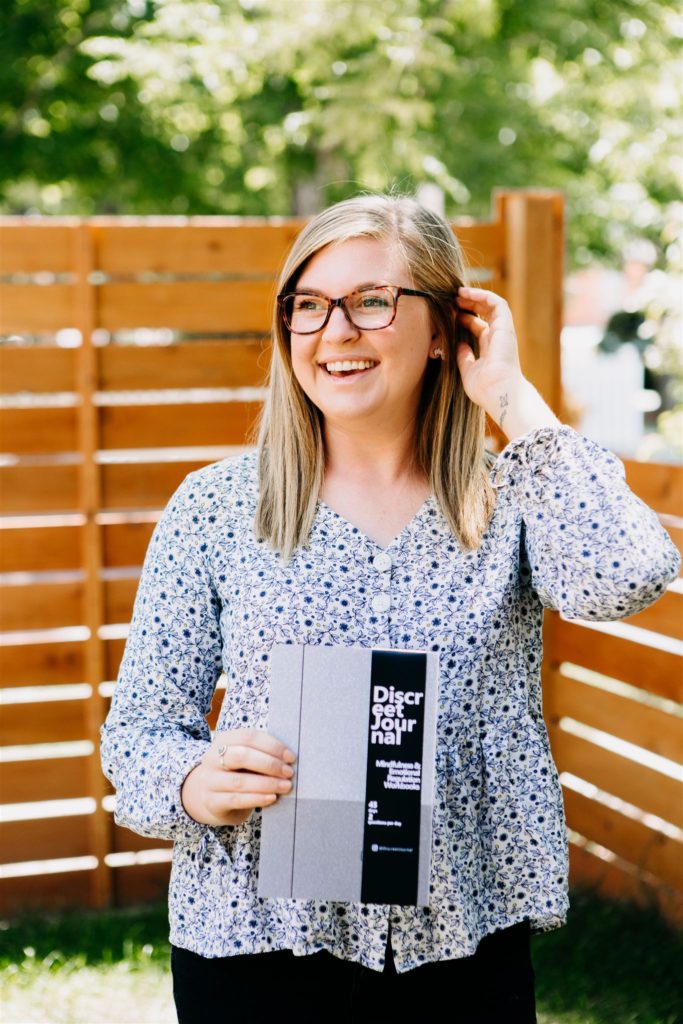
Welcome back to another episode of Your Anxiety Toolkit Podcast. Today I am so thrilled to share a fantastic interview I did with Sommer Grandchamp. Sommer has OCD and anxiety and she, just like so many people, went through some not so great therapy until she found the gold standard treatment for OCD, Exposure and Response Prevention. However, along the way she found that she needed some additional skills to help with her mental health. With her therapist, she learned a type of therapy called Dialectical Behavioral Therapy (DBT). Sommer is here today to talk with us about DBT and mindfulness and how these complements to ERP have been so useful in her recovery journey.
I am a huge DBT fan and I actually use it a lot with my patients and clients, even though I tend not to discuss it too often. It really is so helpful to many people especially as an addition to ERP. Sommer not only shares some of her OCD story with us today, but she also shares the tools and different DBT skills that she uses to compliment her recovery from OCD and anxiety. Sommer has a tremendous amount of knowledge on this topic and so many awesome tools to share with us.
Sommer is also the founder of the Discreet Journal. She created this journal to help people be more mindful and to practice some of these DBT skills that she is going to share today. I just love when people are able to create something to help others out of the hard times that they have gone through. I hope you enjoy this episode that is full of so much wisdom and some great tools that I feel will benefit anyone struggling with OCD or anxiety.
Follow Sommer on Instagram @sgrandchamp and @discreetjournal
ERP School, BFRB School and Mindfulness School for OCD are open for purchase. Click here for more information.
Additional exciting news! ERP School is now CEU approved which means that it is an accredited course for therapists and mental health professionals to take towards their continuing education credit hours. Please click here for more information.
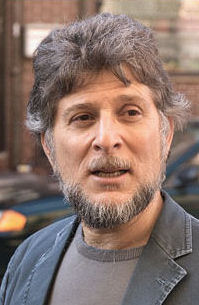
Welcome back to another episode of Your Anxiety Toolkit Podcast. I am so excited because today we are so lucky to have with us again Dr. Jonathan Grayson. Dr. Grayson is a psychologist who has been specializing in the treatment of OCD for more than 40 years. He is also the author of Freedom from Obsessive-Compulsive Disorder and founder of The Grayson LA Treatment Center for Anxiety and OCD. We did an episode a couple of weeks ago that I hope you all were able to hear and at the end of that conversation we both really felt that we needed more time to talk about acceptance.
I first want to ask you all how often do you get stuck wrestling with the way things are? Feeling that you don't really like the way things are, that you're sad about the way things are, that you're anxious about the way things are. Maybe you feel anxious or uncertain, or you are beating yourself up because you do not feel that you are good enough or smart enough or well enough? If that sounds like you then you are going to really love this episode on acceptance.
Jon is here to share his amazing knowledge and experience on this topic and he does a great job of walking us through some of the biggest roadblocks to acceptance. I am so grateful that we had this conversation because you all know that I talk a lot about radical acceptance. As we continued through our conversation, I really thought to myself that I need to readjust my definition and my practice of acceptance.
I hope you enjoy this conversation. I think it is such an important discussion and I am so thankful to Dr. Jonathan Grayson for coming on and sharing his wisdom with us.
FreedomfromOCD.com- You can purchase Freedom from Obsessive Compulsive Disorder as well as download Dr. Grayson's forms.
The Grayson LA Treatment Center for Anxiety & OCD
ERP School, BFRB School and Mindfulness School for OCD are open for purchase. Click here for more information.
Additional exciting news! ERP School is now CEU approved which means that it is an accredited course for therapists and mental health professionals to take towards their continuing education credit hours. Please click here for more information.

Welcome back to another episode of Your Anxiety Toolkit. Today on the podcast, I am so thrilled to have such an amazing and talented guest, Georgia Lock, on with us. Georgia is an actor, presenter, OCD advocate, and poet. She lives in London and has so much wisdom and beauty to share with us. Georgia is here to share how she has used poetry to turn the pain of her experience with OCD into beauty.
Georgia shares her OCD story and recovery journey with us. We also have a great conversation about shame, guilt, and grief. Georgia shares several of her poems with us and you will see why she is an award winning poet. Her poetry explains so well what it is like to live with mental illness, anxiety, and OCD. I just love when people can use words to perfectly describe what it is like to experience something, whether that be really joyful or really, really painful. Her poetry takes the pain that she has experienced and wraps it in such beauty.
I truly hope you enjoy this conversation. It is a lovely story about someone who has struggled so deeply, but who also has done the work and is now moving on in her recovery journey in such a beautiful way.
Follow Georgia on Instagram @georgia_nathalie
Click here to purchase Georgia's book of poetry, With Every Wave
ERP School, BFRB School and Mindfulness School for OCD are open for purchase. Click here for more information.
Additional exciting news! ERP School is now CEU approved which means that it is an accredited course for therapists and mental health professionals to take towards their continuing education credit hours. Please click here for more information.
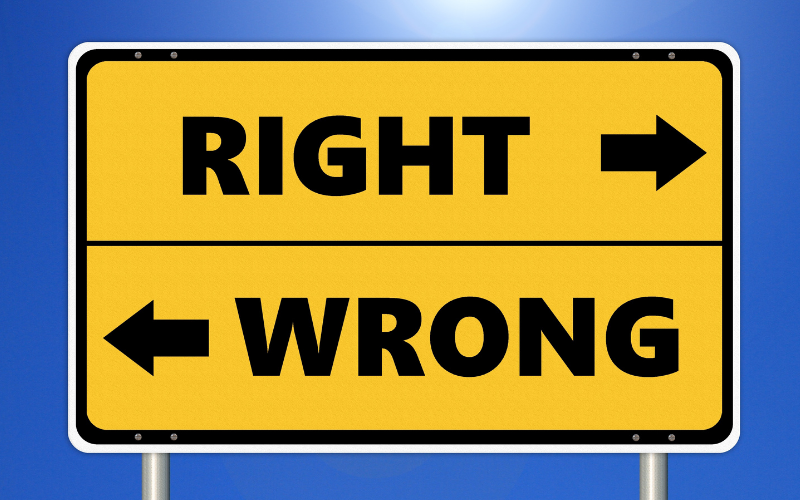
Welcome back to another episode of Your Anxiety Toolkit Podcast. Today I wanted to talk to you about something that I have been struggling with recently. So you all know that I made the decision to travel back to Australia to visit my family. This decision caused a good deal of anxiety initially, but I also soon recognized that feelings of hyper-responsibility, such as am I being irresponsible by going home, were popping up as well.
I had to break this down. Why do we have this sense of hyper-responsibility to always do things "right"? That level of responsibility can cause us a tremendous degree of anxiety. We tend to put expectations that are unrealistic on ourselves to be perfect, good, the fixer of all things broken. So how can we take a step back from that? We actually exist on a spectrum. When you are anxious, maybe you need to recognize that so much of that anxiety is driven from these feelings of hyper-responsibility, from this fear of being irresponsible. That's key, my friends. Just because you feel it doesn't mean it's the truth. Just because you feel irresponsible doesn't mean you are irresponsible.
We sometimes have to check the facts. I'm encouraging you to do a check on this hyper-responsibility and see if you can tone it down to a place that's healthy. You can check yourself as you start to respond in a compulsive or an avoidant or reassuring way and you can say, "Hey, is this being led by hyper-responsibility? And if so, where can I land that's healthy." I want you to challenge yourself in this area. Practice stepping back and letting somebody else be the responsible one for a minute or an hour or a day or a year. Try recognizing that yes you have some responsibilities, but also recognize where that hyper-responsibility may be getting in your way.
ERP School, BFRB School and Mindfulness School for OCD are open for purchase. Click here for more information.
Additional exciting news! ERP School is now CEU approved which means that it is an accredited course for therapists and mental health professionals to take towards their continuing education credit hours. Please click here for more information.
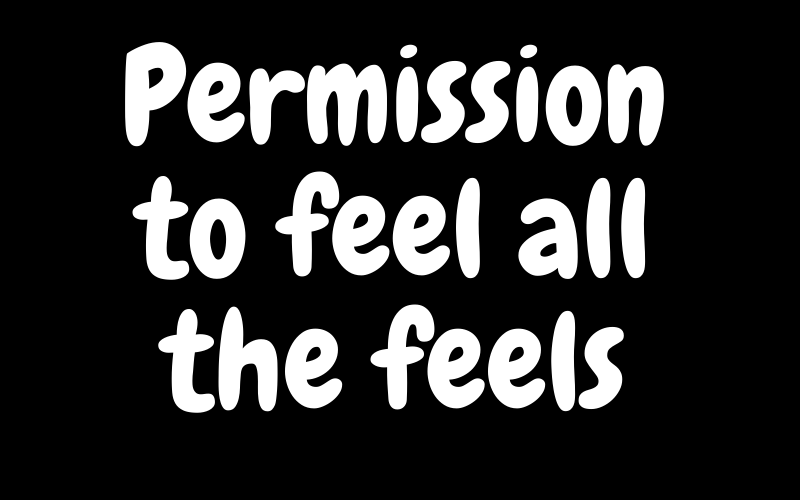
Welcome back to another episode of Your Anxiety Toolkit Podcast. As I am working on this podcast, I am about to embark on an international trip where I will be gone for a long time, away from my family, and part of the time isolated, in a quarantine hotel for several weeks. My emotions, I'm not going to lie, are all over the place. I swing from being grateful to angry to sad to happy to fearful. So I thought this was actually a perfect time for the subject of this episode which is your feelings are meant for feeling.
Right now, I am having all of these different feelings, opposing feelings. Some of them are pretty strong and aggressive. Some will cause me significant discomfort and pain and some will be new, and I'll be curious about them.
We tend to get into trouble when we start to believe that we are supposed to control our feelings and be the gatekeeper of them. We allow some feelings and push others out. I want you all to know that you are supposed to feel your feelings, all of them. When you feel them and you wade your way through them, you heal them.
I have learned that instead of being the gatekeeper, I pretend that the feeling is a guest and when it comes to the gate I say, "Hello, anger. Hello, fear. Hello irritability. I see you come on in." I allow them to be there as long as they need. I honor that each and every one of these emotions has a purpose. I'm allowed to be angry. I'm allowed to be anxious. I'm allowed to be whatever I feel. None of these feelings make us bad. None of these feelings define who we are. They are temporary emotions that we are supposed to feel.
When you take away the judgment of good and bad and right and wrong, you can start to see these feelings as waves that flow through you. Your sense of empowerment over these emotions also increases. It is a very empowering statement to say "I allow you. Welcome. Come on in."
It is a gift to say, "I'm giving myself permission to feel. I'm not going to push my feelings away. I deserve to move through my feelings."
That is my goal is here today. For you to recognize that there is nothing wrong with the feelings that you have. Give yourself tons of compassion and honor each and every one because your feelings are meant for feeling.
ERP School, BFRB School and Mindfulness School for OCD are open for purchase. Click here for more information.
Additional exciting news! ERP School is now CEU approved which means that it is an accredited course for therapists and mental health professionals to take towards their continuing education credit hours. Please click here for more information.
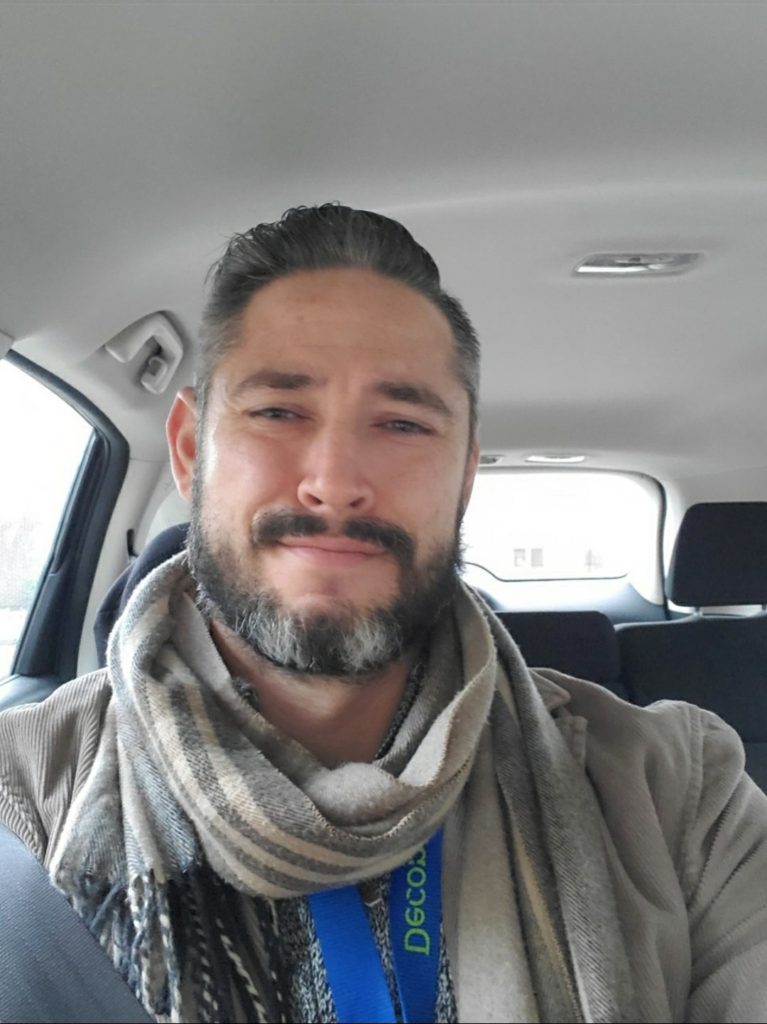
Welcome back to another episode of Your Anxiety Toolkit Podcast. On today's episode I am so excited to have Sean Shinnock with us. Sean is an amazing artist and mental health advocate and he is just one of the sweetest souls that I know. I am so thrilled to have Sean with me today to talk about the monsters that live inside us.
Now, for those of you who have heard Sean speak before, you know that he has a project called Draw Your Monster. The idea is for you to draw your monster, personify it, and actually bring that monster to life. You can then begin to have a conversation or a relationship with your monster which actually helps you with your recovery.
In our conversation today, we talk about our own monsters and what they look like, but we also go on to discuss the stigma and shame that lives within us and the pain that we go through when living with a chronic illness as well as a mental illness. We discuss the importance of accountability and strong support systems and we also have a beautiful conversation about vulnerability and simply being human. It really is such a lovely discussion with a dear, dear friend and I'm so excited for you guys to have a listen. I hope you will enjoy this conversation as much as I did.
Sean's Instagram @sshinnock or @drawyourmonster
Sean's website www.sshinnock.com
ERP School, BFRB School and Mindfulness School for OCD are open for purchase. Click here for more information.
Additional exciting news! ERP School is now CEU approved which means that it is an accredited course for therapists and mental health professionals to take towards their continuing education credit hours. Please click here for more information.

Welcome back to another episode of Your Anxiety Toolkit Podcast. Today we are going to be talking about a subject that I hope will resonate with a lot of you. We are going to be discussing the stages of grief because I really want to normalize the experience of grief and give you all permission to grieve what we are collectively going through right now.
The stages of grief were first identified by psychiatrist and researcher, Elisabeth Kubler-Ross. The first stage is denial. You may deny that the event happened, or deny your feelings, or you isolate away from people so that you don't have to talk about your feelings. The second stage is anger. You are grieving the loss of something and that makes you angry because it feels unfair. You may be angry about coronavirus or the loss of a loved one or maybe even your mental illness. The third stage is bargaining. You may do an analysis of the event and then start to go into a negotiation process in your mind. "If only I hadn't done this, it would have been better." The fourth stage is depression. In this stage, things feel really hard and you deeply grieve and have a deep sense of sorrow. The fifth stage is acceptance. In this stage, you come to an acceptance of the situation. You start to reintegrate into your life and begin to move on. There is a final stage that has also been described called the making meaning stage. In this stage, you try and give your grief meaning by turning your pain into purpose.
These steps are here to help you acknowledge the normal experience of grief. So often people have these feelings and are not quite sure what it is, which can make the experience far worse. I want you to remember that these are normal processes that we go through during life. With life, there is loss. Your job is to be your own most compassionate, supportive friend as often as you can and as unconditionally as you can.
I hope that you are finding some peace and joy in these very difficult days. If not, just keep reminding yourself that is a beautiful day to do a hard thing, and this is a very hard thing that we are all doing right now so please give yourself tons of grace.
ERP School, BFRB School and Mindfulness School for OCD are open for purchase. Click here for more information.
Additional exciting news! ERP School is now CEU approved which means that it is an accredited course for therapists and mental health professionals to take towards their continuing education credit hours. Please click here for more information.
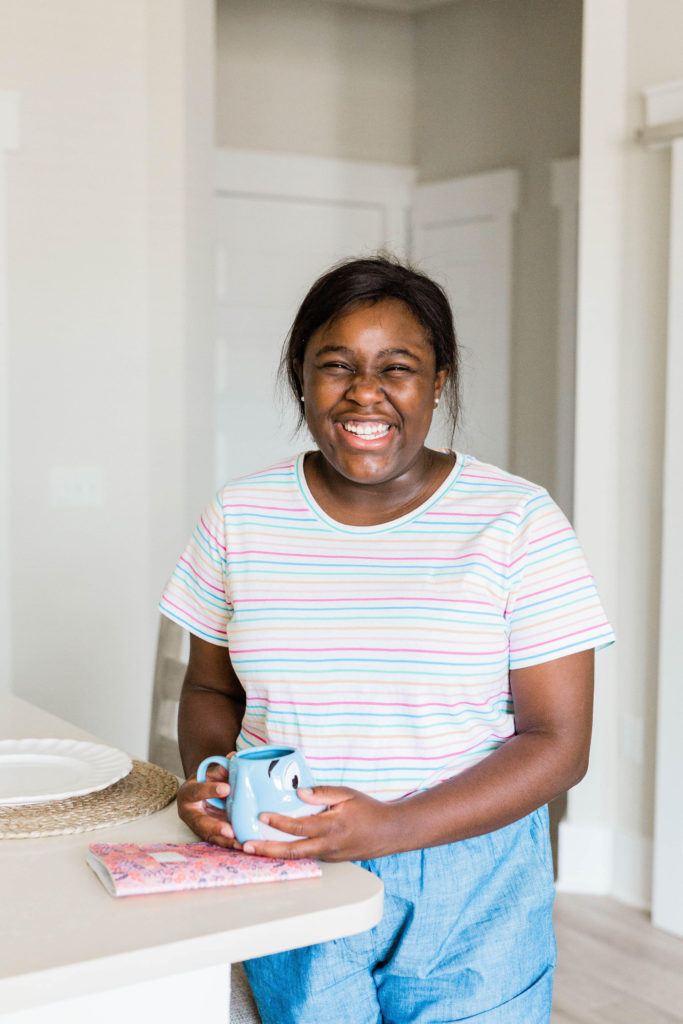
Welcome back to another episode of Your Anxiety Toolkit Podcast. Today on the podcast we have a wonderful interview with OCD and mental health advocate Mimi Cole. Mimi is currently working on her graduate degree in counseling and she is here to talk with us today about her lived experience with OCD, scrupulosity, and an eating disorder. Mimi so beautifully states that she wants to share her story in order to increase awareness, education and resources while decreasing the shame and misconceptions surrounding OCD.
Mimi shares her OCD story, specifically her struggles with scrupulosity. She describes how her religion and her religious upbringing became intertwined with perfectionism and OCD. She shares a bit about her exposures for scrupulosity and what motivated her to begin ERP.
Mimi also describes her experience with orthorexia and her obsessions surrounding clean eating and how she feels this became a link between OCD and an eating disorder. We discuss that intersection between body image, clean eating obsessions, restrictive food intake and how these are all connected to OCD. Mimi is currently exploring a research project on eating disorders as a coping mechanism for OCD.
Towards the end of the interview, Mimi shares how she manages her OCD in recovery. She talks about self-compassion and accepting our common humanity as a few tools she uses to help.
This interview is full of such great information particularly about scrupulosity, a theme of OCD that is not often discussed. I found it so uplifting and informative and I think you will as well.
Mimi's instagram @the.lovelybecoming
Mimi's website www.mimi-cole.com
ERP School, BFRB School and Mindfulness School for OCD are open for purchase. Click here for more information.
Additional exciting news! ERP School is now CEU approved which means that it is an accredited course for therapists and mental health professionals to take towards their continuing education credit hours. Please click here for more information.
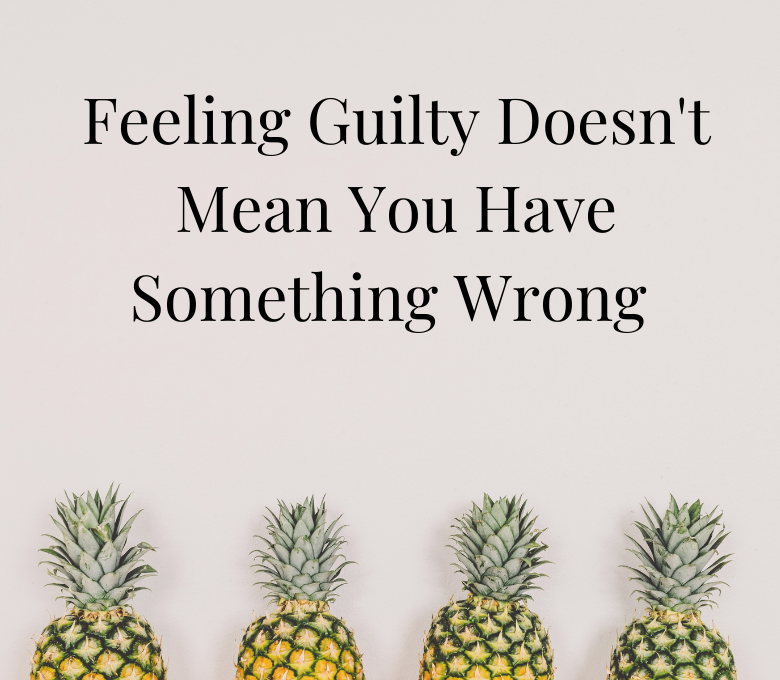
Welcome back to another episode of Your Anxiety Toolkit Podcast. Today's episode comes out of a conversation I had with a client and I thought you all might need to hear this as well. Today we are going to be talking about guilt and this idea that feeling guilty doesn't mean you have done something wrong.
I know that idea might feel strange. When we are feeling guilty, we usually assume that means we have done something wrong. Try thinking of guilt as an intersection. When the feeling arises you can chose to take the road that you have done something wrong or you can go in a different direction and try asking yourself "Is this real? Is there actually evidence that I have done something wrong? Is there a chance that my brain has made a mistake and set off the guilt alarm without there being a problem?" If you see that there is no evidence that you did something wrong, you can try practicing compassion and mindfulness and just allow those feelings of guilt to be there. If you recognize that yes you made a mistake then you can work to address the situation.
A lot of us simply have a little glitch in the guilt system and our guilt gets fired off a bit too easily, too often, and at times where guilt isn't really that appropriate. Guilt is just an emotion and when it comes up it provides an opportunity for growth. Guilt can be painful and it can make us feel bad about ourselves, but remember that you have a choice when guilt shows up. You can choose that road of compassion and simply allow the emotion of guilt to be there.
ERP School, BFRB School and Mindfulness School for OCD are open for purchase. Click here for more information.
Additional exciting news! ERP School is now CEU approved which means that it is an accredited course for therapists and mental health professionals to take towards their continuing education credit hours. Please click here for more information.

Welcome back to another episode of Your Anxiety Toolkit. Today on the podcast, I am so excited to interview Dr. Jonathan Grayson, a psychologist who has been specializing in the treatment of OCD for more than 40 years. He is also the author of Freedom from Obsessive-Compulsive Disorder and founder of The Grayson LA Treatment Center for Anxiety and OCD. In this interview, Dr. Grayson discusses the power of embracing uncertainty in the treatment of Obsessive Compulsive Disorder.
In the beginning of our conversation, Dr. Grayson discusses how he explains OCD to his new clients. He shares that the core of OCD is trying to be absolutely certain and that the goal of treatment is to learn to live with that uncertainty in the same way that we live with all of the many uncertainties of life.
We then go on to discuss the ways he helps motivate his clients to do ERP and to begin embracing that uncertainty. He has his clients fill out a form that asks certain questions including the one that he finds most critical "Why would I take this risk?" He also has his clients write down "What have you lost to OCD?" "How have you hurt the people you love because of OCD?" and "What do you hope to do with your life when you are free from OCD?" I found another question he asks his clients to be particularly helpful. When asking clients to begin embracing uncertainty and to take the risk that X may happen, he asks them to imagine how you will attempt to cope if the most terrible thing you can imagine actually happens.
We also have a great discussion about mindfulness and compassion and how he uses both in his practice. This interview is full of so many fantastic insights. I learned so much myself and I hope that you will find it as enjoyable and informative.
FreedomfromOCD.com- You can purchase Freedom from Obsessive Compulsive Disorder as well as download Dr. Grayson's forms.
The Grayson LA Treatment Center for Anxiety & OCD
ERP School, BFRB School and Mindfulness School for OCD are open for purchase. Click here for more information.
Additional exciting news! ERP School is now CEU approved which means that it is an accredited course for therapists and mental health professionals to take towards their continuing education credit hours. Please click here for more information.

I know it continues to be a really tough time for everyone. I am definitely not immune to those struggles. In taking time off, I came to a realization about why I was having such a hard time. It wasn't about COVID or anxiety or stress. I was struggling because I had been having a mental tantrum inside my own head 24/7. My mental tantrum sounded something like this "It's not fair. This should not be happening. I'm supposed to be healing. This isn't the way it should be. It's not fair." I had no idea I was even doing this. I was having an adult sized tantrum in my head that no one else could see. Now it is important to understand that all of these thoughts are valid. It is a tough time and people are suffering, but the way I was saying it was definitely not validating.
I approached this by turning back to what has been the foundation of my recovery, something I learned about 15 years ago. It is rooted in the principles of Buddhism and that is 'in life there is suffering. It is not the suffering that causes the pain. It is the resistance to the suffering that causes you the pain.' So for me in this situation, my resistance or my mental tantrum was actually what was causing me the most pain.
Recognizing this and having compassion for myself is so important here. And asking myself is there a way that I can take off my stomping shoes and stop resisting the fact that this is a hard time?
We really do have a choice. Do we meet hard times with tantrums and resistance or do we meet those hard times with compassion, validation, consideration and respect? In these moments now when I still find myself throwing that mental tantrum, I simply note it and say "Ok I see what's happening and how am I going to deal with it? Am I going to keep throwing this tantrum or am I going to hold space for the fact that this tantrum is representing how hard things are and how much I am still struggling?"
This has been such a huge lesson for me during COVID-19. I hope it is helpful for you as well as we are all still navigating these difficult and challenging times.
ERP School, BFRB School and Mindfulness School for OCD are open for purchase. Click here for more information.
Additional exciting news! ERP School is now CEU approved which means that it is an accredited course for therapists and mental health professionals to take towards their continuing education credit hours. Please click here for more information.

Today on Your Anxiety Toolkit, we are joined by Gelong Thubten, a Buddhist monk, meditation teacher and the author of A Monk's Guide to Happiness. He is here to discuss how mindfulness and meditation can help us understand the power of our own minds. This episode is not about religion, rather, it is a beautiful message of wisdom and compassion.
In this beginning of this episode, Gelong Thubten spends some time discussing happiness and how this desire to be happy really drives everything we do in life. The search for happiness can get us caught in a loop where we ultimately end up feeling more and more dissatisfied. He points out that the goal is to learn that true happiness is already inside each one of us. He goes even further to say that we can actually learn to be happy. It is a skill that we can practice. He explains that meditation can help us learn to be kinder to ourselves by teaching us how to transform our relationship with our thoughts. We become an observer of our thoughts during meditation. This non-judgment of thoughts and letting our thoughts simply be, actually allows us to have compassion for the moment and compassion for ourselves.
Gelong Thubten gives some suggestions on how to begin a practice of mindfulness and mediation if you are a beginner. He stresses that there is no perfect way to meditate and it truly is a practice that you must work on. You don't have to do it perfectly for it to be effective. He suggests getting some instruction on how to meditate whether that is a book or online resource or even an app on your phone. He also suggests starting in very short increments, such as, five minute sessions. You begin your meditation by focusing on your body and finding your breath. When your mind wanders, do not engage in self-criticism, simply come back to your breath.
We learn in this episode that meditation is a time of total freedom. You simply are in the moment, without judgment. By practicing these moments of nonjudgmental acceptance throughout the day, you are learning compassion which eventually will become your natural state. Gelong Thubten explains that our bodies are not designed for anger and rage. When we are happy, generous, kind, and connecting with others, we feel good inside, we feel happy which suggests that is our natural state. In other words, who we are deep down before we get caught up in negative and toxic outside influences. Meditation, he explains, is about bringing us back to that natural state.
A Monk's Guide to Happiness: Meditation in the 21st Century
Instagram @Gelongthubten

Hello everyone!!! I am so grateful that I was able to take some time off, but I am so happy to be back and I am excited to talk to you today about a really important lesson that I have learned and that is this concept that self-respect is not optional.
Let me share a little bit about what this means. So many times, especially during COVID, I have been faced with the question: am I going to be respectful or disrespectful to myself right now? We are all actually faced with this question everyday, multiple times per day. Your responsibility is to show yourself respect every moment of every single day. Why? Because you are a human being and you get to have respect simply for being human. It is not something you earn. It is unconditional. This can be really hard for a lot of us, but self-respect is not optional. You deserve self-respect no matter what simply for being you not because of something you have done.
How do you go about showing yourself respect? First, start by setting boundaries. It is respectful to set kind, compassionate boundaries and to show up for yourself when someone crosses that boundary. Second, hold yourself accountable. In other words, do what you say you are going to do. If you say I am establishing boundaries then hold yourself to that. Third, listen to and honor your body. If your body is hungry the most respectful thing you can do is to feed it. If you are tired ask yourself what your body needs at that moment. Also acknowledge what you respect about yourself and even share that with those you love. You might say "I really respect how well I have handled this difficult time." I find it to be true that self-respect is really the first step towards self-compassion. Finally, do not apologize right away. Apologies are wonderful, but sometimes we move too quickly to apologize or find ourselves apologizing for every misstep. Sometimes it is better to take a step back and really have a conversation with the other person. It is more respectful to have that conversation about what happened and to understand the other person and have them understand you. The healing happens in the back and forth communication, in hearing each other's point of view.
I want to leave you with the reminder that it's a beautiful day to do hard things and I hope you will let self-respect be one.
ERP School is open for purchase! ERP School is jam packed with the same tools and information that Kimberley uses with her own clients to help them learn to manage their OCD. And now if you purchase ERP School between September 14-28, you will receive 2 FREE bonus materials that will be emailed directly to you! Please click here to purchase.
Additional exciting news! ERP School is now CEU approved which means that it is an accredited course for therapists and mental health professionals to take towards their continuing education credit hours. Please click here for more information.
Hello everyone! We have some very EXCITING news today here at CBT School. We are so happy to announce that ERP School is being relaunched today, September 14, 2020! And we are so excited to say that it is now CEU approved!!!! This means that it is now an accredited course for therapists and mental health professionals to take towards their continuing education credit hours. This is so special to us because it has long been a mission of CBT School to educate as many clinicians as possible about OCD and Exposure and Response Prevention.
ERP School is jam packed with the same tools and information that Kimberley uses with her own clients to help them learn to manage their OCD. And now if you purchase ERP School between September 14-28, you will receive 2 FREE bonus materials that will be emailed directly to you! You will receive a free checklist of the important things you need to know as you practice ERP and a free audio training from Kimberley about things that may be getting in the way of your recovery. You will receive unlimited access to both of these bonus materials if you purchase before September 28th.
So please head on over to cbtschool.com where you can purchase both the regular ERP School as well as the ERP School for CEU 's.
Your Anxiety Toolkit Podcast will be back on September 25th! We have so many awesome topics to cover and some amazing guests lined up. We can't wait! See you all on the 25th!
Welcome back to another episode of Your Anxiety Toolkit. I wanted to take some time today to let you know that I am going to be taking a break.
I am going to take a couple of months off to heal, to replenish, to restore and to rest. I want to share with you how I came to this decision about taking a break because I am wondering if you may be struggling with the same feelings.
Over the past several months, I have found that I have not been slowing down enough to replenish. I haven't been listening to my body which has been saying to me "rest, please take some time." What has been so hard for me and may be hard for some of you as well, were the feelings I had that "I should be able to handle all of this and I'm weak if I can't." I was really judging myself for having those feelings. When I finally stopped and accepted that my body was trying to tell me something, I was able to recognize that now more than ever, my body, as wise as it always is, was telling me to slow down and take more time.
So I want to ask you all to check-in with yourself and do a quick assessment to really connect with your needs. What your body is telling you? We are in such difficult times right now. There is so much uncertainty and anxiety which can take a tremendous toll on the body. Now more than ever it is so important to recognize the importance of taking care of ourselves.
So what can we do to begin taking care of ourselves? We can take a deep breath. We can bring validation and recognition to all of our feelings and then we can give ourselves exactly what we need. If that means eating a brownie, or having a good cry or taking a break. I hope you will stop and honor your body and give it what it needs at this time.
ERP School, BFRB School, and Mindfulness School for OCD are all now open for purchase. If you feel you would benefit, please go to cbtschool.com
While Kimberley is taking a break, we are not going to leave you hanging. Each week for the next 10 weeks we will send you a new anxiety management tool to help you stare fear right in the eyes. This 10 week series is FREE and we cannot wait to have you join us! Click here to get started.

Welcome back to another episode of Your Anxiety Toolkit. Today on the podcast, we are so lucky to be able to talk with Dr. Dennis Tirch, the founder of The Center for Compassion Focused Therapy and the author of six amazing books including, The ACT Practitioner's Guide to the Science of Compassion and The Compassionate-Mind Guide to Overcoming Anxiety. Dr. Tirch is here to talk with us about learning to embody self-compassion.
In the beginning of this interview, Dr. Tirch spends some time discussing the definition of self-compassion and why self-compassion is so important for our mental health, especially for those struggling with anxiety.
Dr. Tirch says that learning to embody self-compassion involves “grounding ourselves in a sense of emotional safeness, meaning and purpose.” By practicing self-compassion and mindfulness, Dr. Tirch says we can “gradually train the mind to rest in an awareness of compassion and care.” He so beautifully tells us that if people can learn to embody this self-compassion and feeling of being grounded then they will be able to “turn towards the things they fear and walk through them.” By learning to embody self-compassion and learning to speak to yourself in a compassionate voice, Dr. Tirch says your empathy will grow and your ability to tolerate distress will grow as well.
Dr. Tirch spends some time talking to us about his own personal self-compassion exercises and he shares how important breathing and meditation can be when learning to embody self-compassion.
Finally, Dr. Tirch spends some time explaining the importance of “finding your aim.” When we ask ourselves “what is your aim?’ it helps us become more self-aware and able to find our purpose.
This is an amazing interview so full of beauty and wisdom. I hope you all enjoy.
The Compassionate-Mind Guide to Overcoming Anxiety
The ACT Practitioner's Guide to the Science of Compassion
Dr. Tirch's website www.mindfulnesscompassion.com
Ep: 134: Giving and Receiving Meditation
ERP School, BFRB School, and Mindfulness School for OCD are all now open for purchase. If you feel you would benefit, please go to cbtschool.com
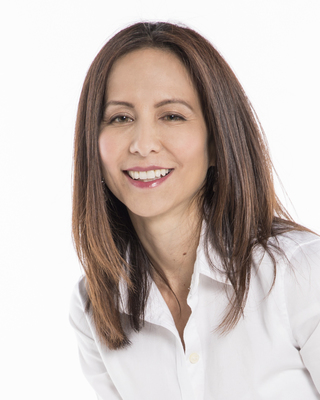
Welcome back to another episode of Your Anxiety Toolkit. Today on the podcast we are talking about facing your fears with Dr. Patricia Zurita Ona, or Dr. Z for short. Dr. Z is a licensed clinical psychologist in California treating clients with OCD, anxiety and trauma. She has written several amazing books including Living Beyond OCD Using Acceptance and Commitment Therapy and The ACT Workbook for Teens with OCD. In our interview, Dr. Z discusses how to use Acceptance and Commitment Therapy to augment treatment of OCD, social anxiety, panic disorder, and phobias. Dr. Z shares with us WHY facing your fears is so important and something you should want to do!
In this episode, Dr. Z talks about,
1. Ruling your thoughts and how to unpack them.
2. How to date your mind.
3. How to know which behaviors are working and which are not.
4. How to find values that energize you.
5. Create your own ERP menu that includes your own triggers and avoidant behaviors.
6. Learn how to react using wisdom.
7. Learn how to identify the ways your brain creates patterns.
Dr. Z's websites www.actbeyondocd.com and www.thisisdoctorz.com
Dr. Z's Instagram @dr.z.passionatebehaviorist
Link to Dr. Z's books https://www.thisisdoctorz.com/books/
ERP School, BFRB School, and Mindfulness School for OCD are all now open for purchase. If you feel you would benefit, please go to cbtschool.com
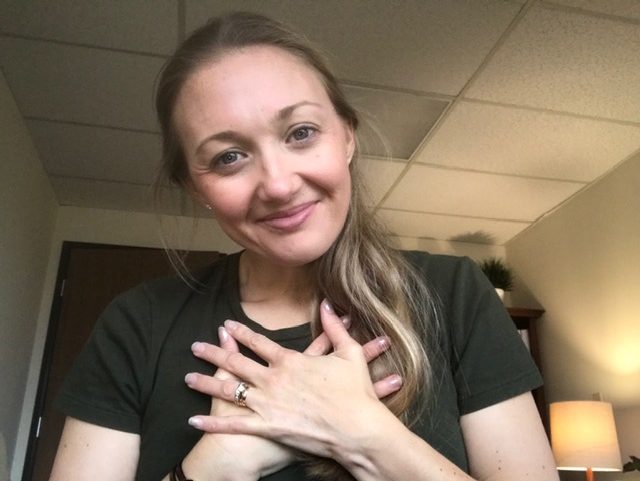
Welcome back to another episode of Your Anxiety Toolkit. Recently we have talked a lot about self-compassion. If you go back to episodes 134, 146, and 147, you will see self-compassion mentioned a lot. Today we are going to expand on that discussion by learning how to write ourselves a self-compassion letter.
I have actually been doing this with my clients for years and it really just involves putting your self-compassion into words which can actually be so helpful.
There are several steps in writing your self-compassion letter. The first step is to show awareness of your struggle. You might say “I see that you are having a hard time.” Whatever it is, just bring it to your awareness and write it down.
The second step is bringing in some words of unconditional love. No matter how much you are suffering, you still get to be loved and cared for.
The third step is to show yourself some empathy for the distress you are in. You might say “I see you. I see the pain you are going through. I can relate to that.”
The fourth step is recognizing your common humanity. In your letter, you want to bring in the common humanity of your struggle. You could say “Everybody knows what it is like to have anxiety. I am definitely not alone.”
Next you want to normalize the fact that when we suffer we all want to engage in safety behaviors. A safety behavior is anything you may do to try and take away your fear, or shame, or sadness. Safety behaviors usually have unintended consequences and they usually end up causing more problems. Instead you would want to explore some more helpful solutions. You are going to look at the situation and say “How might I help myself?”
The last step is to say something really, really kind to yourself and finally you are going to read your self-compassion letter aloud.
Below is an example of my own self-compassion letter.
Kimberley, my dear one. It’s okay that I’m having a hard time right now. I feel afraid and I really just want to jump out of my skin. This is really a difficult time for me. Now, what I am feeling is not wrong. I’m doing the best I can with what I have at this moment. My suffering, this discomfort I feel, it deserves to be met with kindness and tenderness. I deserve that. I am worthy of this kindness and tenderness I’m giving myself. And I wish for myself to have some peace of mind. I know it’s a hard time, but I know I will find peace.
Now I’m going to find this peace mostly by doing what I’m doing right now, which is changing the way I respond to my suffering. Every single pain that shows up inside me, I’m going to meet with kindness and I’m going to recognize that each moment of suffering is worthy of self-compassion.
I’m strong and I can face fear and I can hold space for my emotions, no matter how hard it is. I deserve to be a safe place for fear, as it rises and falls in my body. I am my best ally and I have everything I need right here inside me to get through these hard times.
Now I promise to be there for myself when things get hard. I’m sending you my love.
Now Kimberley, go gently into this moment, my darling.
ERP School, BFRB School, and Mindfulness School for OCD are all now open for purchase. If you feel you would benefit, please go to cbtschool.com
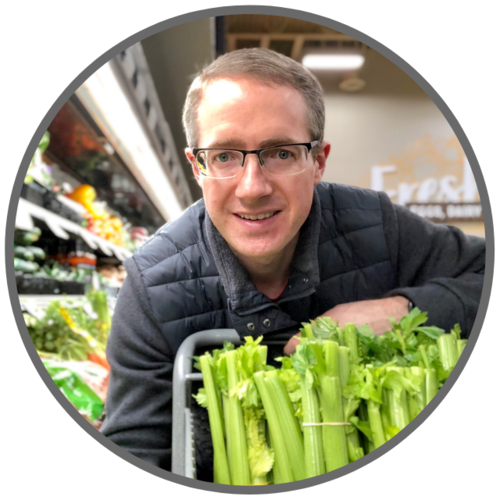
Welcome back to another episode of Your Anxiety Toolkit. Today on the podcast we are talking with Christian Newman about managing health anxiety.
Christian is an anxiety coach who has done a lot of work learning to manage his own health anxiety and today he is sharing with us the tools that he has used to help regain his life from health anxiety.
In this interview, Christian shares his own struggle with health anxiety and how it impacted his daily life. He shares how a terrifying panic attack led him on a journey to discover how to deal with his health anxiety. He shares with us several important tools that he has used to help him effectively manage his health anxiety. The first tool is the contract that he made with himself. In this contract, Christian wrote down everything that he was going to do to overcome his anxiety. This included stress management, diet, exercise routine, and sleep habits. Once he made this contract, he committed to taking action in his own life. One of the first actions that he took involved addressing the compulsions that fueled his health anxiety. He asked himself what positive actions he could take instead of engaging in the compulsive behavior. This allowed him to teach his brain to engage in something more positive which would then allow him to move forward.
He also discusses how mindfulness including journaling, setting intentions, and meditation have helped along with Acceptance and Commitment Therapy. He explains that at times he still has moments of uncomfortable symptoms or sensations, but he has learned how to recognize what is happening and not allow those feelings to derail his life.
Christian’s Instagram @healthanxiety.coach
Christian’s website www.healthanxiety.coach
ERP School, BFRB School, and Mindfulness School for OCD are all now open for purchase. If you feel you would benefit, please go to cbtschool.com
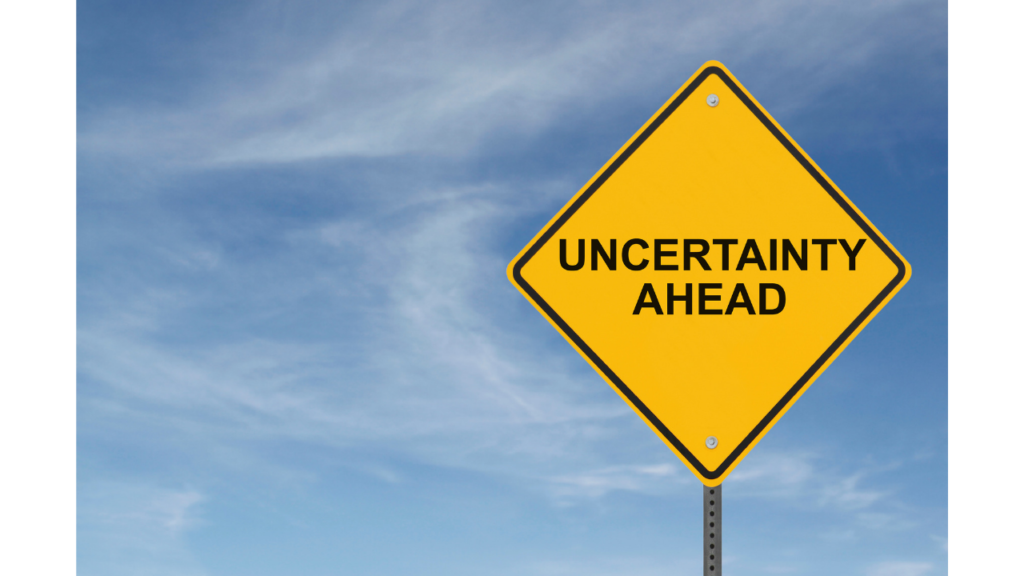
Welcome back to another episode of Your Anxiety Toolkit. Today I want to talk with you all about the feelings of uncertainty you may have coming out of COVID-19.
As we slowly begin to move out of quarantine, a lot of my patients and clients have started to talk about how scary it is to go back into life because there are so many uncertainties.
Coming out of a difficult time requires us to accept change while staying in the uncertainty. When we begin coming out of COVID-19, we must face this sort of uncertainty, not knowing whether it will stay or whether it will get better or if it will come back. What is it going to look like in six months? What is it going to look like in a year? These are the questions we are all asking and because we are asking those big, big questions, we are going to have big, big emotions about them. Having these big emotions does not mean that you are not handling this well. It doesn't mean that there is something wrong with you. My hope is to give you permission to have them. My second wish is to ask you to please not judge yourself for what you experience as you begin coming out of COVID-19. If those big emotions show up, before you judge yourself gently say, "It's okay. It's okay that I feel this. I'm allowed to feel these emotions."
Remember, it is normal to feel anxiety. You might have anxiety about having to go back to seeing people in person. You might have anxiety about having to find a new rhythm to life. You may have been secretly benefiting from quarantine because it meant that you didn't have to be around the thing that scared you before COVID-19. If you have been lucky enough to not see the thing that frightens you, I really urge you to go right back into staring that fear in the face as soon as possible, because the longer you delay it, the harder it's going to get.
The thing to remember about anticipation is that is ultimately just about the uncertainty. It's about leaning in and saying, "Okay, I radically accept that I don't know. I'm going to take one step at a time. I am not going to beat myself up. I'm going to do my best to be non-judgmental. And I'm going to try and find a glimpse of joy along the way." I'm going to look for those teeny tiny shimmers of joy that may be along the way. I still believe that when we open our eyes to joy, we can find it, even if it's once a day.
So, I hope you go with intention and give yourself permission to have all the feels.
ERP School, BFRB School, and Mindfulness School for OCD are all now open for purchase. If you feel you would benefit, please go to cbtschool.com
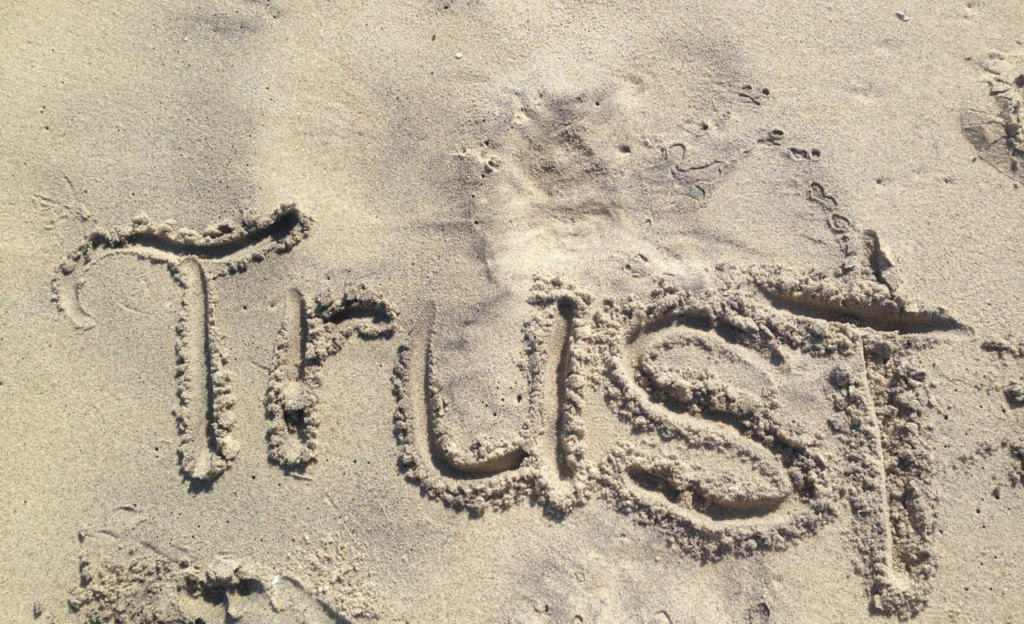
Welcome back to another episode of Your Anxiety Toolkit. Today we are going to talk about a really important topic: learning to trust yourself.
Trust is so important for our feelings of safety and security. So often I hear from people who are experiencing anxiety and depression that they do not trust themselves. Today I want to share with you all a metaphor about trust, that I love, and I think it will help you conceptualize how to look at trust.
This is a metaphor that Brene Brown has talked about a lot. She said that when you meet somebody they have an empty jar (metaphorically) and overtime as they show you in little ways, it might be their consideration, their respect for you, maybe they remembered your birthday, perhaps they sent you a little care package, every time they do something nice for you one marble is placed in the jar. If they do another small thing, you put another marble in the jar and overtime that jar fills up. This is how we experience a sense of trust for that person. Trust is something that grows and it often doesn’t come from the big things. It comes from the teeny tiny things. Maybe a little smile when you are having a hard time, or checking in with you, or holding a safe place for you when you are struggling. So, now that we have that conceptualization that trust is something we build over time, we also need to recognize that when somebody has let us down the marbles may come out. Maybe half the marbles. Maybe all the marbles. Perhaps just one. We can always grow trust back even if someone has betrayed us. If we want to build that trust back up, this involves giving the person a second chance. Often when someone has been very seriously betrayed, they make the choice, "I don't want to trust that person. I don't want to ever put myself in that position again.” Whereas other people might say, “well I love this person. I'm willing to take the risk.”
Now, this applies to ourselves too. You begin learning to trust yourself based on the small acts that you do for yourself. It's about taking care of yourself, making sure you're well-fed, making sure you're listening to your body. When you're frightened, it's about doing the hard thing instead of the easy thing. Every time we do that we are saying, “I've got your back unconditionally even during the difficult times.” Now, just like I said before if you betray yourself, you ignore your needs, and put yourself down, you take out some of those marbles. If I've let a friend down or my partner down or my child down, I will intentionally try to regain their trust, and I'll do it in very small ways. I will be there for them, be kind to them, show up for them. This is the case for myself as well. If I have let myself down, I will need to show up in small ways with the intention that I want to trust myself.
A lot of the time, when I'm doing hard work in therapy with clients, they back down because they tell themselves, “I can't do this. I can't.” I tell them this is a matter of trust. You think you can't because you haven't in the past. This is a part of the process of learning to trust yourself, and it's an intention that you need to work on every day. Through those small acts, you'll get there. There will be days when you lose marbles. We all make mistakes, but we can all stand up and make the intention to build trust again for ourselves. It has to be unconditional. That is where our long-term wellness can benefit. So, I'm going to challenge you to think about how full your jar is for the people around you and the one for yourself and then ask yourself how intentional you are about building up that jar of trust.
ERP School, BFRB School, and Mindfulness School for OCD are all now open for purchase. If you feel you would benefit, please go to cbtschool.com

Welcome back to another episode of Your Anxiety Toolkit. Today we have on the podcast an amazing guest, Heather Hansen. Heather is a trial attorney, television legal analyst, and author of The Elegant Warrior: How to Win Life’s Trials Without Losing Yourself. Heather shares how we can learn to become a better advocate for ourselves using many of the same tools that she has used in the courtroom.
In this episode, Heather details the “tools of an advocate” that you can use to help win over your own self jury, that critical voice in your head that may say “You’re not good enough. Things aren’t going to work out. It’s time to be anxious.”
One of the tools Heather discusses involves collecting evidence when faced with self-doubt or worry. She suggests writing down, at the end of the day, what has made you proud. By collecting evidence, you start to build credibility with yourself. You can’t advocate for yourself unless you believe in yourself. Collecting evidence, building credibility and believing in yourself are the first steps in learning to become a better advocate.
Another tool of the advocate involves the words that you use and particularly the words you say to yourself. Words can create your reality. If you are anxious and use the term ‘I am freaking out’ you likely will freak out. However, changing your words to ‘I am concerned’ can actually change how you view a situation. The next tool is perspective. If you view the world as dangerous and scary then the world is going to feel dangerous and scary. There are always many ways to view a situation, Heather challenges us to look at all of those different views and then choose the perspective that best serves you. Finally Heather spends some time discussing how presentation, body language, and tone are also important tools of an advocate.
Heather provides such fascinating information and amazing insight. I was taking notes during the entire interview! I hope you find it as helpful.
You can find more information on Heather Hansen's blog, podcast, books, and coaching services at heatherhansenpresents.com
The Elegant Warrior: How to Win Life's Trials Without Losing Yourself
Find Heather on Instagram @imheatherhansen
ERP School, BFRB School, and Mindfulness School for OCD are all now open for purchase. If you feel you would benefit, please go to cbtschool.com
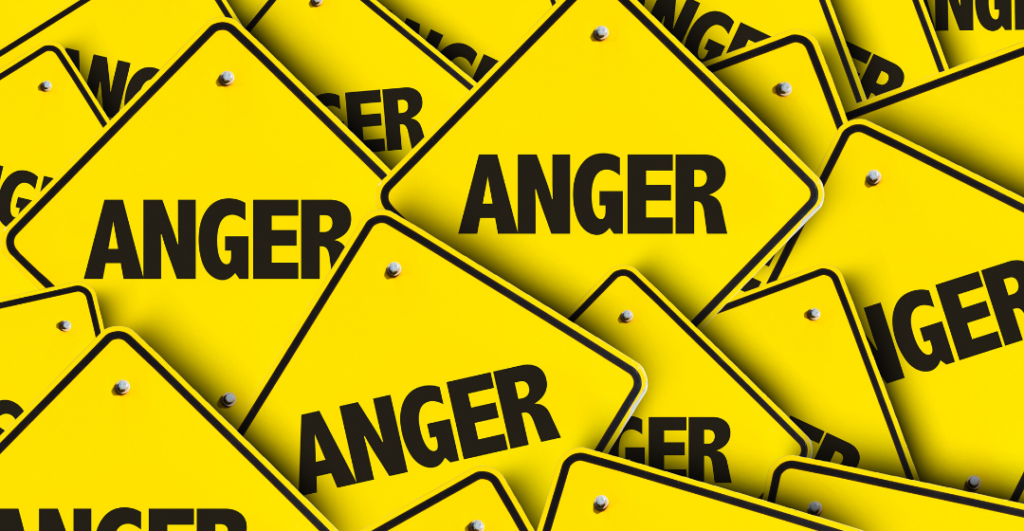
Welcome back to another episode of Your Anxiety Toolkit podcast. Today I want to talk to you about anger. I have talked about anger before, but this time is a little bit different. I want to tell you why anger is your friend.
When I say that to people, they usually have a reaction and they say “No, it’s not. Anger is horrible. Anger makes me uncomfortable.” I think we have anger all wrong because society tells us it’s wrong. We are told “You are not allowed to be angry. It is disrespectful to be angry. You’re overreacting. You are so insecure.” Those are the messages we so often receive about anger and they only direct us away from listening to our anger.
Let’s first discuss, what is anger? Anger is an emotion that you feel and it is usually a reaction to some kind of injustice or some kind of threat. If you have been wronged, you feel angry about it. If you feel like you are physically or emotionally in danger, anger is usually the emotion that arises. Anger is just one emotion in our toolkit and it is so important.
The cool thing about anger is that anger propels us forward. While anxiety pulls us backward, anger pushes us forward into either protection or problem solving mode. Anger is your friend because it shows up with a message that we should listen to. If you feel anger, the trick is to see that underneath the anger is an emotion that has a lot of knowledge and something to tell you. Anger is your friend because it will help lead you to where you work is, whether that is fear, shame, guilt or any other underlying emotion.
When you feel anger arise, the first thing I am going to encourage you to do is to just validate the feeling. You can say “I feel angry and that is OK or I am noticing anger in my body right now.” Next I want you to meet yourself with compassion. Something has been activated, some kind of pain and all pain, no matter the source, deserves and requires compassion. Finally, once you’ve validated and practiced self-compassion, the next step is to ask yourself what is underneath this anger? What is it trying to tell me? So in this moment just get really quiet and listen. Are you angry because you are afraid? Are you angry because you feel shame? Are you angry because someone brought up a fault that you didn’t really want to address? These are some reasons we all feel anger so remember you are not alone.
Since anger is your friend you can use it to propel you forward into solutions. If you listen to the anger, validate it and ask it what it needs, it will usually led you to your suffering so that you can either tend to it or solve it. It is really THAT powerful!
ERP School, BFRB School, and Mindfulness School for OCD are all now open for purchase. If you feel you would benefit, please go to cbtschool.com
Welcome back to another episode of Your Anxiety Toolkit Podcast. Today I want to share with you one of my favorite topics of all time: how to access your compassionate voice.
You may be thinking what exactly does that mean? Well it means helping you to get in touch with the compassion that lives inside each of you. So often my clients and patients say to me “I don’t know how to access compassion” or “I don’t know what that even feels like.” Here is the thing. Your compassionate voice has always been inside of you, but sometimes other messages are simply louder. If you learn to listen deeply for it than it becomes so much easier to pick up. That little voice inside of you is ready to speak up and it is ready to fill you with a loving sense of self-compassion.
During this episode, I walk you through how to begin to access your compassionate voice. You start by closing your eyes, following your breath and asking yourself some questions. These questions help you to tap into your compassionate voice and to start to become familiar with it. First, what does your compassionate voice sound like? What tone does your compassionate voice speak in? How would you like your compassionate voice to show up for you? How do you relate to your compassionate voice? Finally, what do you need from your compassionate voice?
I really hope you will be open and experiment with this practice. It is such a beautiful exercise and the more you do it, the more you will hear and feel your compassionate voice. Even if it seems unnatural at first, I hope you will still give it a try because it can be really helpful for your mental health. Try viewing it as a type of emotional training. You are giving yourself a tool that one day you may need and then you will have it with you and know how to use it. Remember compassion is not about making the pain go away; rather, it is about meeting your suffering with safety. It is about showing up for yourself during the hard times.
ERP School, BFRB School, and Mindfulness School for OCD are all now open for purchase. If you feel you would benefit, please go to cbtschool.com

